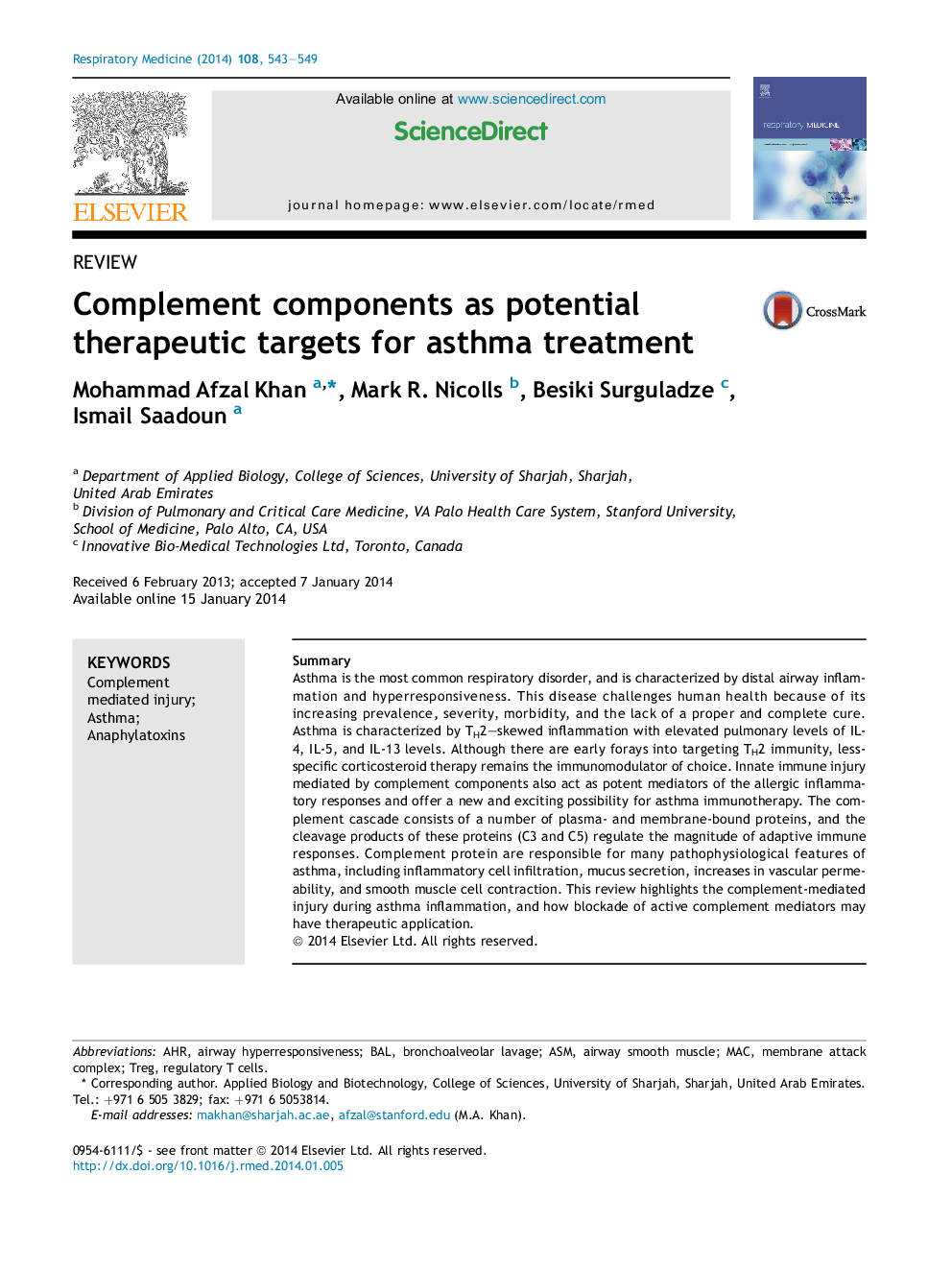| Article ID | Journal | Published Year | Pages | File Type |
|---|---|---|---|---|
| 6242261 | Respiratory Medicine | 2014 | 7 Pages |
Abstract
Asthma is the most common respiratory disorder, and is characterized by distal airway inflammation and hyperresponsiveness. This disease challenges human health because of its increasing prevalence, severity, morbidity, and the lack of a proper and complete cure. Asthma is characterized by TH2-skewed inflammation with elevated pulmonary levels of IL-4, IL-5, and IL-13 levels. Although there are early forays into targeting TH2 immunity, less-specific corticosteroid therapy remains the immunomodulator of choice. Innate immune injury mediated by complement components also act as potent mediators of the allergic inflammatory responses and offer a new and exciting possibility for asthma immunotherapy. The complement cascade consists of a number of plasma- and membrane-bound proteins, and the cleavage products of these proteins (C3 and C5) regulate the magnitude of adaptive immune responses. Complement protein are responsible for many pathophysiological features of asthma, including inflammatory cell infiltration, mucus secretion, increases in vascular permeability, and smooth muscle cell contraction. This review highlights the complement-mediated injury during asthma inflammation, and how blockade of active complement mediators may have therapeutic application.
Keywords
Related Topics
Health Sciences
Medicine and Dentistry
Pulmonary and Respiratory Medicine
Authors
Mohammad Afzal Khan, Mark R. Nicolls, Besiki Surguladze, Ismail Saadoun,
